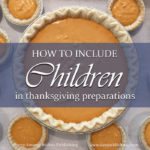What If My Student Hates Science
 Obviously, these posts have turned into a series. I probably would have remarked on that fact when I did What If My Student Hates Math, except that I really couldn’t face referring to it as the “What-If-My-Student-Hates . . .” Series.
Obviously, these posts have turned into a series. I probably would have remarked on that fact when I did What If My Student Hates Math, except that I really couldn’t face referring to it as the “What-If-My-Student-Hates . . .” Series.
I mean think about it. I’m writing a homeschooling blog, not a psychology course.
That being said, there are plenty of homeschooling moms out there wondering how they got their kids to like history, and English, and social studies—but can’t get anything except groans when it’s time for science.
 Why I Hated Science
Why I Hated Science
As with the math-hating topic, I feel a certain affinity with students who struggle with science. With the exception of half a course in primary school, and about one and a half in high school (more on that later), I suffered from a chronic dislike of science throughout my educational years.
There were three tangible reasons for this dislike.
1) I was an avid history buff, and we happened to study history and science in the same time slot on alternate days. Thus, I disliked science because it wasn’t history.
2) I was a child who hated to get my hands sticky, and science sometimes involves experiments that get all over the place.
3) I was an unathletic student, never had any difficult sitting still, and therefore did not find it refreshing to get up and try experiments. That sounds horribly lazy. Maybe it was. But I do remember disliking the bother of doing experiments if I wasn’t actually curious about the result!
Underneath all of these objections to science lingered the real one: I just wasn’t naturally drawn to the study of the impersonal laws of nature. You can’t love everything, and science was one of the things I didn’t love!
Why Everybody Else Hates Science
No, I am not going to be so conceited as to suppose we can make two categories, and call the first “why I hated science” and the second “why everybody else hates it.” On the other hand, I am aware that not all students who dislike science dislike it because they are unathletic, don’t-get-their-hands-sticky, dyed in the wool history buffs.
As a general statement, however, I would suggest that there are two overarching causes, one or other of which tend to influence the feelings of most students who hate science.
1) The student really does not have a natural interest/aptitude for science. Please note the word natural. I do NOT believe that a teacher needs to give up in despair if their student happens to fall into this category. Interests can be learned. Aptitudes can be fostered. As we will discuss in a little bit, it is more than possible to stimulate scientific interest in the most inveterate science-hater. But as I observed above, it is a simple fact that some people take more easily to a given subject than others. Those are the students who fall into category one.
2) The student has a talent for science, but not for the way science is presented. This is a more complex, but not necessarily a more difficult problem. When we discussed the topic of students who hate writing, I mentioned the fact that the manual difficulty of using a pencil may sometimes be enough to disenchant a student who has a real talent for composition. The same can be true of science. Every science course is different. Every child is different. There will be times when the combination of child and course just plain doesn’t work. In this case the child doesn’t really hate science. They just hate their science course!
Finding the Key that Fits the Lock
Regardless of which category your student falls into, the solution will be basically the same. The door to loving their science course is locked. The door is there, but it won’t open, and it’s up to you to find the key.
Every school subject can be approached from a variety of angles, but not all of those angles will be equally appealing to a given child. Finding the key when your student hates science means discovering the approach which allows your student to connected with their subject as easily as possible.
As I mentioned earlier, not all of my science lessons were unenjoyable. In particular, I remember taking grade nine chemistry, and absolutely loving it. Most students love chemistry when you get to do lots of experiments mixing different kinds of chemicals in little glass test-tubes. If your student has a bent for this, by all means encourage it! But as we discussed earlier, I was not big into experiments.
The reason I loved my grade nine science, was because our course took an historical approach. It was a history of chemistry. It built up the principles which a high school science course needs to cover, but it did it through the researches and discoveries of the scientists who had explored those principles. For the first time in my life, I honestly enjoyed a whole year of science—and it was completely because my teacher had found the right key!
Teaching the Student Who Hates Science
Obviously, there may be moments in a student’s life, when they just need to learn the prescribed lessons, whether they enjoy themselves or not. There are times in life when all of us have to do that.
But there are also times when we (and by “we” here I’m meaning the teacher a bit more than the student) are too quick to acquiesce in the idea that a child just hates their work, and that’s all there is to it.
If your student hates science, don’t surrender the field without a contest. Science is not a subject that can only be learned one way. If the way you’re trying isn’t working, try another one!
(And that applies, by the way, to a lot more than science!)
If you have experienced the difficulties of a student who hates science, I’d love to hear the specific challenges you’ve faced, as well as the strategies which have helped/are helping you along the way! Just use the comments section below.
Looking for more encouragement as you persevere with struggling students? See our previous post:

Today’s Timeless Tip offers some valuable hints for how to include children in Thanksgiving preparations – without adding stress to your holiday!

Are you looking for a Christian vocabulary program that will boost your students’ vocabulary while introducing them to some of the greatest English literature of all ages?

Do you read the books your children are reading? It’s a commitment that takes time and energy, but it’s also one which amply repays the effort!

